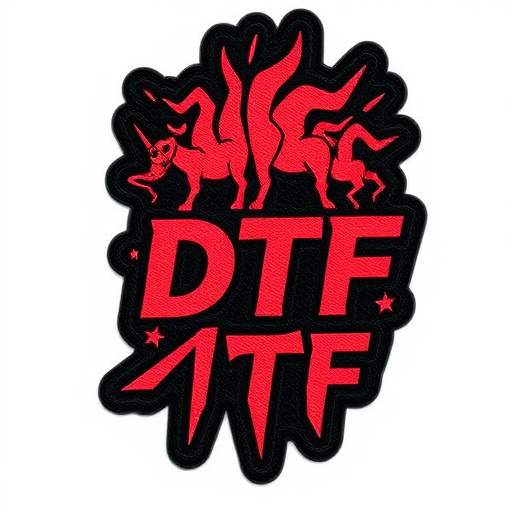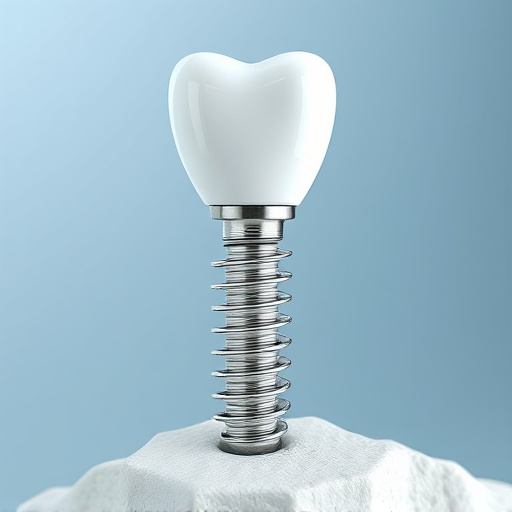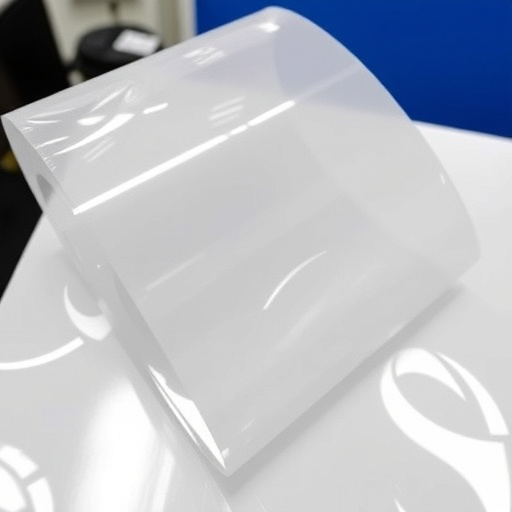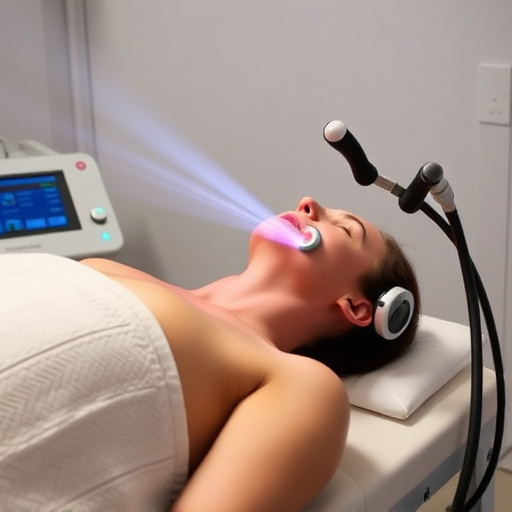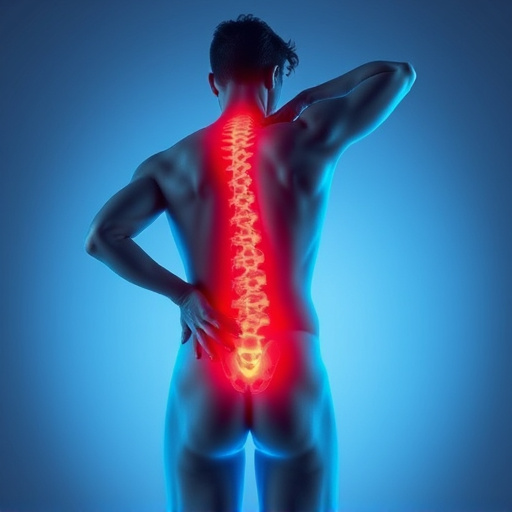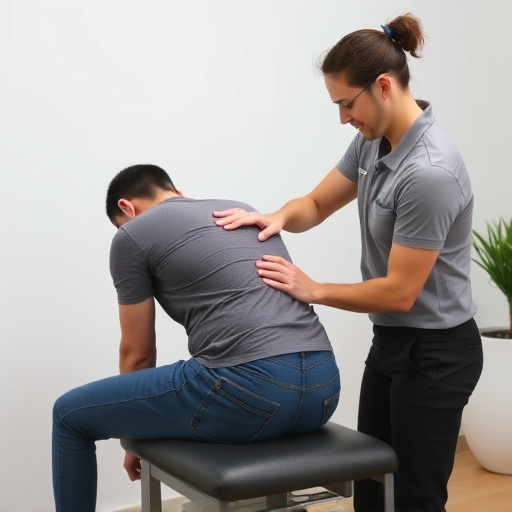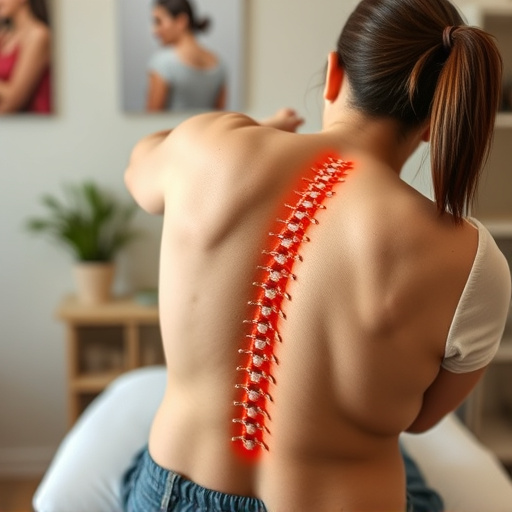Pinched nerves caused by physical trauma like car accidents or sports injuries lead to significant discomfort and pain, characterized by sharp, shooting radiation to specific body parts. If self-care measures fail after a few days, seek professional help for specialized assessments and treatments, including chiropractic care, physical therapy, medications, and lifestyle changes, to manage and prevent future issues.
Do you suffer from tingling, numbness, or sharp pain in your arms or legs? You may be experiencing a pinched nerve—a common yet often misunderstood condition. This article guides you through understanding and addressing pinched nerves, focusing on when to seek professional help for effective relief. Learn about potential causes, symptom recognition, and treatment options, empowering you to make informed decisions for your well-being. Discover when self-care measures are insufficient and exploring medical interventions for lasting pinched nerve relief.
- Understanding Pinched Nerves: Causes and Symptoms
- When Self-Care Falls Short: Knowing When to Seek Professional Help
- Exploring Treatment Options for Effective Pinched Nerve Relief
Understanding Pinched Nerves: Causes and Symptoms
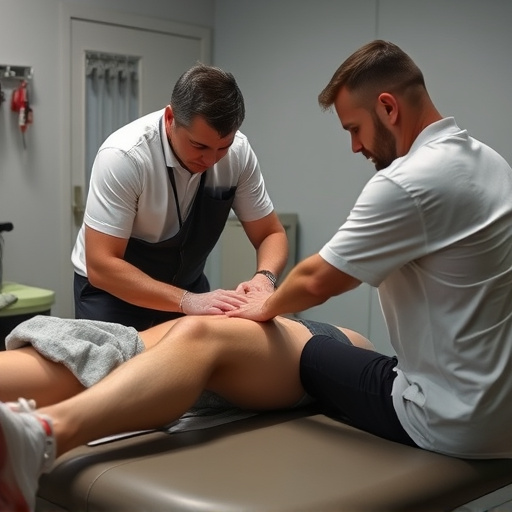
Pinched nerves are a common issue that can occur due to various factors, often resulting in significant discomfort and pain for those affected. Understanding what causes these pinched nerves is the first step in finding effective relief. One of the most frequent reasons is physical trauma, such as an auto accident or sports injury recovery, where compression or strain on a nerve root can occur. This can be due to whiplash from a car crash or repetitive motions and excessive pressure during intense athletic activities.
Symptoms typically manifest as sharp, shooting pain radiating along specific pathways in the body. It may start suddenly or develop gradually over time. For instance, a pinched nerve in the arm could cause discomfort or numbness that extends down to the hand and fingers. Similarly, a pinched nerve in the lower back might lead to pain radiating down one leg. Recognizing these symptoms is crucial as they can vary widely depending on the affected area, ranging from mild discomfort to severe, debilitating pain requiring prompt attention for effective pinched nerve relief.
When Self-Care Falls Short: Knowing When to Seek Professional Help
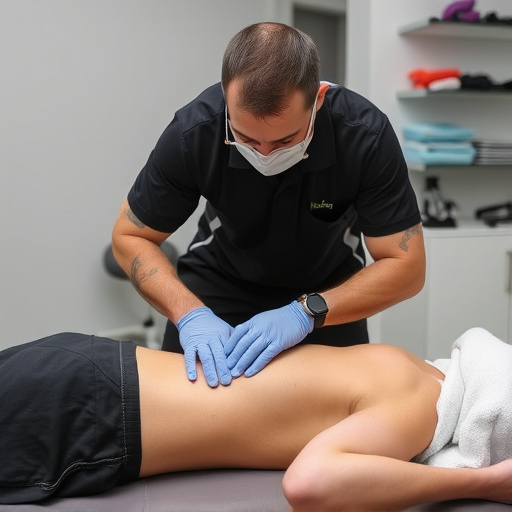
Despite best efforts to alleviate discomfort, if self-care measures fail to provide pinched nerve relief, it’s time to consider professional help. Chronic pain persisting beyond a few days, severe or shooting pains, numbness extending down limbs, and difficulty moving or walking are signs that require expert attention. A healthcare professional can perform specialized assessments like spinal adjustments to identify the root cause of the pinched nerve and offer tailored solutions.
For individuals recovering from auto accidents or seeking mobility improvement, these professionals play a crucial role in auto accident recovery by addressing underlying issues contributing to pinched nerves. They provide safe and effective treatments such as manual therapy and may incorporate exercises for strength and flexibility, ensuring not only pinched nerve relief but also long-term wellness.
Exploring Treatment Options for Effective Pinched Nerve Relief
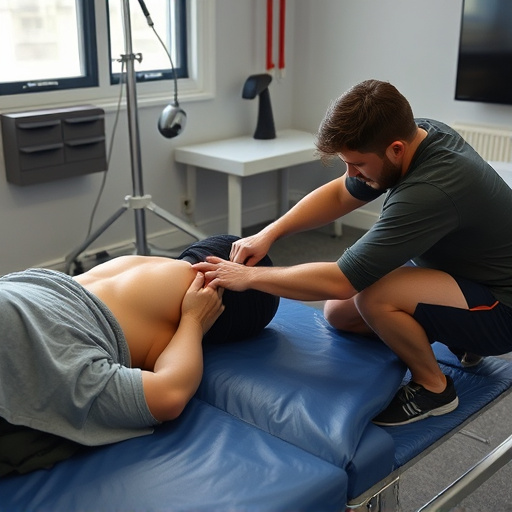
When it comes to seeking professional help for pinched nerve relief, understanding various treatment options is essential. Chiropractic care offers a non-invasive approach, focusing on spinal adjustments to alleviate pressure on nerves. Skilled chiropractors can provide targeted adjustments, aiming to restore proper alignment and function, thereby offering effective pinched nerve relief.
Beyond chiropractic treatment, other options include physical therapy, medication, and lifestyle changes. Physical therapists can design exercises to strengthen muscles, improve posture, and reduce strain on nerves. Medications, such as anti-inflammatory drugs, may provide temporary neck pain relief and reduce inflammation associated with a pinched nerve. Lifestyle adjustments, including improved ergonomics and stress management, can also play a significant role in managing and preventing future pinched nerve issues.
If self-care measures like rest, ice, and over-the-counter pain relievers fail to provide significant pinched nerve relief after a few weeks, it’s time to consider professional help. A healthcare provider can offer specialized treatments tailored to your specific condition, ensuring faster and more effective pinched nerve relief. Don’t let persistent symptoms impact your daily life; take the first step towards recovery by consulting a medical expert.

